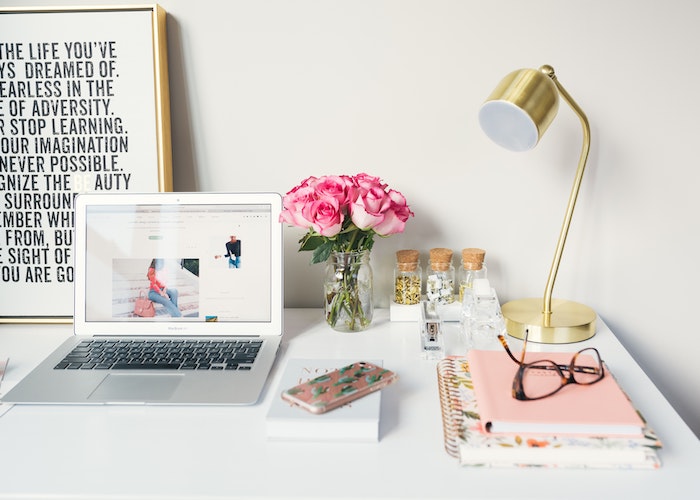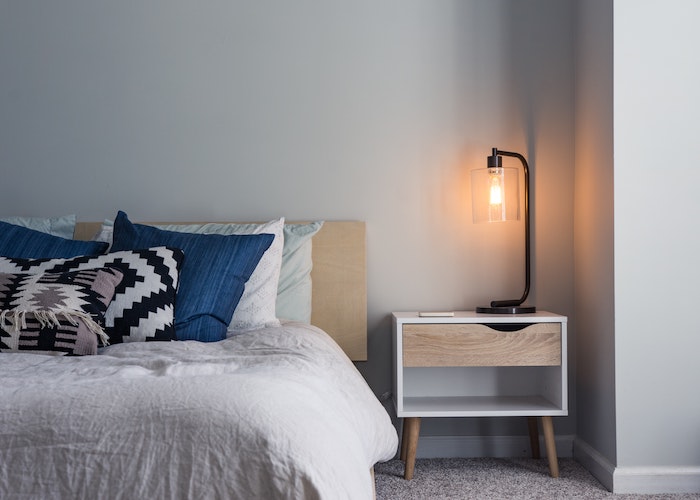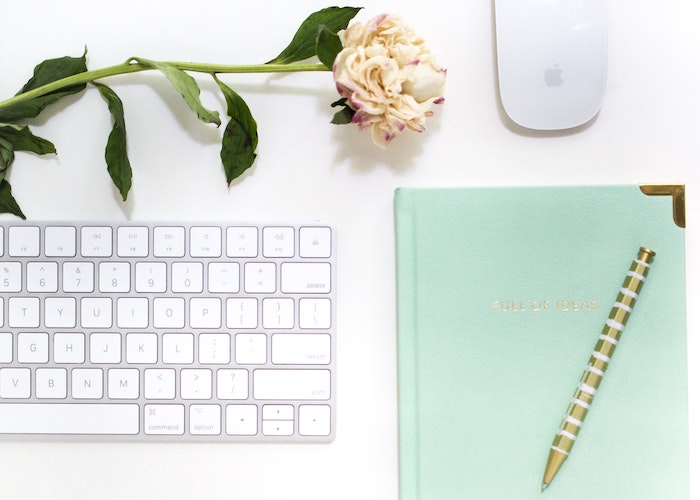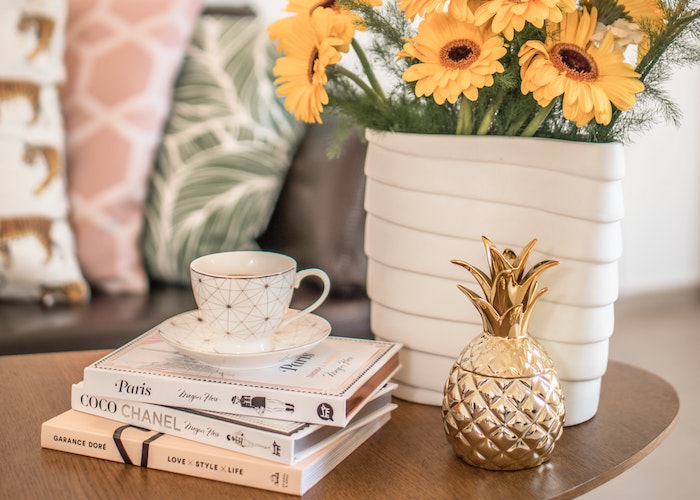5 Habits That Make Me Feel Like An Actual Adult

For the longest time, I was basically a trainwreck — you couldn’t depend on me for anything. I was completely disorganized, often forgetting appointments altogether and losing important documents. My living space was a mess, my budgeting skills were non-existent, and I was generally not very good at “adulting.” But after spending several years in therapy and growing up in general, there are certain habits I’ve developed that make me feel like an actual adult.
I’m still far from perfect, but here are five of the most concrete habits that have helped me get my life in order.
1. Arriving early to all of my appointments.
As I mentioned, there was a point in my life when I’d straight-up forget that I had certain appointments, like doctor’s visits or therapy sessions. When I started the recovery process for my mental health issues, I had to juggle specialist appointments in addition to attending college and working part-time.
The first year of this was a disaster. My poor therapist wouldn’t even get so much as a phone call to warn her that I wasn’t going to make it. Obviously, that was super disrespectful in terms of wasting her time, and I was taking up precious space in her schedule that could have been given to someone else who needed the support. So about a year or two into the recovery process, I made a point of being at least 10-15 minutes early to all of my appointments.
I used a paper planner to map out my week, and always allotted extra time in my schedule to account for issues like unplanned subway delays. I got good at being consistent—not only showing up when I said I’d be there, but also arriving early. As the saying goes, if you’re not 10 minutes early, you’re late.
Not only has this new habit made me a more respectful and dependable human being, but it’s also reduced my own stress levels because I no longer feel guilty about wasting people’s time.
2. Cleaning my living space at least once a week.
I wrote an article for TFD about how the KonMari method truly improved my life. After decluttering my living space, I found myself way less stressed out. But on a day-to-day level, I’ve also found that regularly cleaning my living space has a massive effect on my wellbeing.
Every Sunday afternoon, I set aside at least a couple of hours to deep-clean my space. I clear any lingering dishes, disinfect surfaces like doorknobs and handles, dust, vacuum, change linens, and stock my mini-fridge with snacks and drinks for the week.
To make the experience fun, I love to put on a good podcast or blast some of my favorite music. As a finishing touch, I also like to run my essential oil diffuser with a nice blend, such as lavender and peppermint or lemongrass and eucalyptus. Not only do the essential oils keep my space smelling fresh and clean, but the process of diffusing them also feels like a mini-reward for myself!
3. Skipping the bar.
As I’ve also written about previously in my TFD column, I quit drinking about a year ago. That was a personal decision to improve my mental health, but there have been plenty of other benefits, too.
I used to be someone who’d get blackout drunk pretty much every single weekend. It was something I looked forward to as a way of “letting loose” or “having fun.” But you know what’s actually way more fun? Not waking up every Sunday morning wanting to crawl into a hole because you’re deathly hungover and you’ve lost your wallet.
It’s honestly wild to think about how deeply-ingrained alcohol is in our culture. It’s everywhere: from the restaurants we go to, the concerts we attend, or the college parties we excitedly rush to when we feel like “adults” for the first time. And, of course, alcohol has its place in many people’s lives; if you can comfortably enjoy having a few drinks, more power to you. But I found that my alcohol use was actively creating problems and worsening my health, so I chose to stop.
After doing so, I feel way more mature, spending my low-key weekends cleaning, exercising, running errands, and meeting friends for coffee or study dates instead. Plus, my finances and health are better for it.
4. Checking my credit score on a regular basis.
For the longest time, I completely ignored my credit score. Sure, I never defaulted on a credit card or had a debt go to collections, but I still felt anxious about facing my financial situation. It was the same reason I hated looking at my account balances: a total fear of reality. But when my credit card was compromised a few years ago, my bank suggested that I run a credit report to make sure no other accounts had been opened in my name. That was the first time in my adult life that I even knew what my credit score was. The score itself was perfectly fine, but I still felt weird and scared about the whole process.
It wasn’t until I got serious about my finances that I made it a habit to check my score frequently. With the help of TFD, I learned about services like Credit Karma and Borrowell that let you view your score for free. Now I check my score several times per month. You definitely don’t need to be that rigid with it, but I’ve found it motivating to see the numbers slowly go up as I’ve paid off my consumer debt! Not only am I aware of my credit score, but I’m also able to catch any hard inquiries on my credit report, which is helpful in terms of catching potential identity theft or errors.
5. Learning how to do my own taxes.
Anyone who knows me knows that I suck at all things math. I’m horrible with numbers. Even the simplest of calculations warrant the use of a calculator.
So, for the longest time, I outsourced my taxes. As a teenager, my parents’ accountant let my brother and I file with them for free. And as I got older, I started using H&R Block, since they offer discounts for college students.
But a couple of years ago, I started doing more freelance work and also began earning a bit of money from my poetry book sales. Suddenly, I had business income to report. My tax specialist kindly advised me to figure something else out. Since I was now filing business taxes, his rates would be way higher, and it didn’t make sense to pay so much to get my taxes done when I wasn’t making massive amounts of money.
After calling the Canada Revenue Agency directly, they advised me to get some tax preparation software and do it myself. If I couldn’t afford to pay a professional, that was pretty much my only option. (If you’re in the U.S., the IRS has a useful page of tools to help you learn how to do your taxes)
I met with a CRA small business advisor who gave me free advice on properly doing my taxes. I found free or affordable software, like SimpleTax. And over time, I actually learned how to file my taxes!
I also realized that to keep my receipts and expenses in order, I needed some help. So I started using QuickBooks Self-Employed to help automate my business accounting needs. At the end of the year, all of my tax info is super simple to download and the whole process is streamlined.
If I can do it, anyone can do it — and that’s true not just for taxes, but for adulting in general.
*****
What habits have you developed that make you feel like you’ve truly grown up? Let us know in the comments.
(This post was originally published January 2020 and has since been updated)
Mercedes Killeen is a Toronto-based freelance writer and editor. You can learn more about her work, and order her freelance services, at mercedeskilleen.com.
Image via Unsplash





